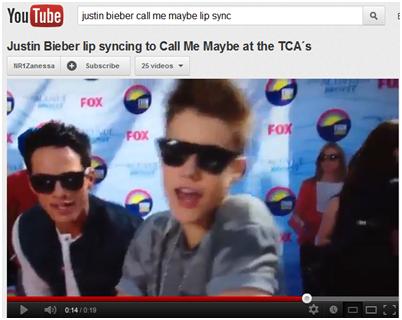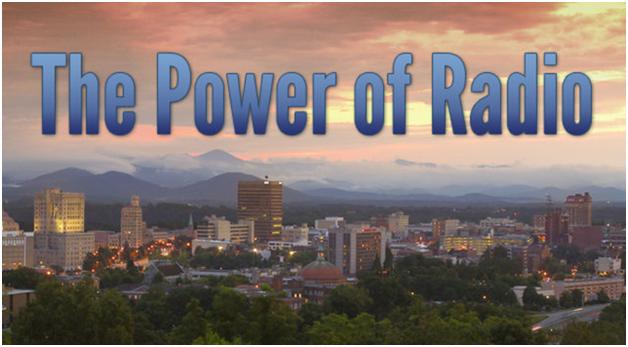Recently, we wrote a post about music discovery focused on a Nielsen 360 study that showed radio’s ongoing value to artist and song exposure.
Many noted the finding that teens have gravitated to YouTube. I saw this in my own home several years ago when I watched my son moving off of iTunes and banging away at YouTube to discover new songs and bands.
Several years later, and YouTube’s dominance among teens has grown. Nielsen’s data shows that while 56% of that young demographic turn to radio first, nearly two-thirds (64%) are utilizing YouTube.
That phenomena and the social media machine became even more prominent in the music discovery model in a recent New York Times article that tracked the rise of Carly Rae Jepsen’s hit, “Call Me Maybe.”
The question is this: In 2012, how do you break a song?
 As the article pointed out, the song first went crazy on YouTube, turbocharged by a viral video of Justin Bieber lip-syncing “Call Me Maybe,” followed by fan tributes that did essentially the same thing. And Bieber endorsed the song to his millions of Twitter followers, too.
As the article pointed out, the song first went crazy on YouTube, turbocharged by a viral video of Justin Bieber lip-syncing “Call Me Maybe,” followed by fan tributes that did essentially the same thing. And Bieber endorsed the song to his millions of Twitter followers, too.
While radio play lagged, the song grew digitally. But when broadcast radio kicked in, “Call Me Maybe” exploded.
So is this a negative story for radio? Or is it just a sign of changing times?
In reality, radio played a major role in the success of “Call Me Maybe,” as it does in just about every successful music endeavor. It’s just that in 2012, the key to breaking a new artist or a new song might be a blended strategy where labels start socially, and move up the ladder to radio.
Consider this quote from Times reporter Ben Isario:
“The song’s trajectory also demonstrates the continuing power of radio, which record executives say is still essential to turn any song — no matter how much online buzz it has — into a genuine smash.”
Or this one from Jay Frank, head of the label DigSin:
“There’s not a single million-seller out there that doesn’t have radio play. But its first million generally doesn’t come from radio.”
These are powerful testimonials that would make everyone from Mary Beth Garber to Erica Farber to Bob Pittman happy about the power of radio proving to be a major factor in hit-making. Same as it ever was.
And by the way, while Facebook and Twitter are each mentioned as primary drivers in the labels’ strategy to break music, nowhere does this article mention Pandora, Spotify, or Sirius.
So thinking about how radio could play a more active role in the discovery and marketing of new artists and bands – and to monetize its contributions – consider this:
In formats that play considerable amounts of new music – Top 40, Country, Christian, Urban, Hot AC, Alternative, etc. – there are some super radio brands that have robust social networks on Facebook, Twitter, and strong email and text databases.
How could radio collaborate with record companies to utilize its social media channels to break new music, “early identify” emerging artists and songs that are bubbling under socially, and to spread the word within its networks in ways that enhance a station’s music credibility and local reach?
Could radio create special sections on Facebook brand pages devoted to new music, artists, chats, Google Hangouts, and other social tools that could help generate views, comments, and activities?
While radio’s social media track record is at best very checkered, its ability to amass friends and followers is proven. Market and even station-specific tests would reveal the power of radio’s social footprint in a short period of time.
I’ll leave the legal mechanics to those on both sides of the aisle who need to concern themselves with these issues. But as both Nielsen and the New York Times points out, collaborative efforts will lead to results that can quantifiably foster more new artists (good for radio) and higher record sales (good for the performers and the labels).
We have already commented on the insanity of the music industry’s ongoing campaign to denigrate and bleed radio. Here is yet another example of how the two could work together to salvage their assets and their brands.
- Media And Technology In 2025: Believe It Or Not! - April 18, 2025
- In Radio, You Just Never Know - April 17, 2025
- The Secret To Making A Great Podcast (And Great Radio) - April 16, 2025





Great article. We are experiencing some results via you tube that we didn’t expect. We also know that the value of good results from You tube is to create enough of a story that it can be taken to radio. Even with a radio promoter on board a story is a part of the process.
Thanks for the comment and the point that stories matter. You can use the metrics as a jumping off point but a building story can be compelling. Thanks for writing and good luck.
Thank you for the direction and response. Look forward to more to come from your blog.